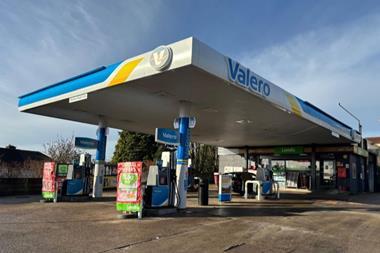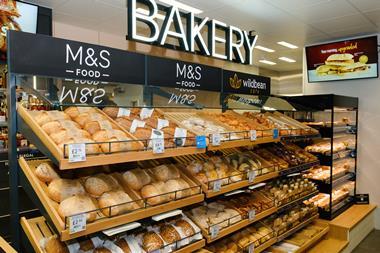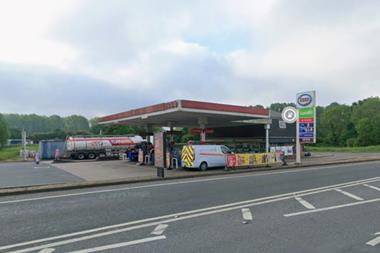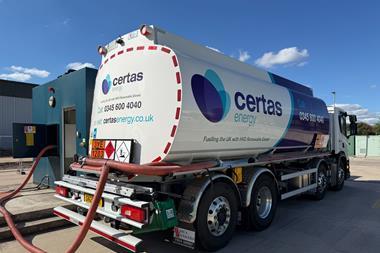A 2.5% increase in UK pump prices over the past month risks putting road fuel costs back on the path that led to six weeks of record fuel prices earlier this year, warns the AA.
In the past month, average petrol prices have risen 3.34ppl, from 132.18ppl in mid July to 135.52 now. Diesel is up 3.19ppl, averaging 140.45ppl now compared to 137.26p in mid July.
Diesel is already more expensive than this time last year, when a litre cost 140.32p. Petrol a year ago averaged 136.18p, just 0.66p a litre higher than now. Fuel prices moved into record territory at the end of February this year, surging past the 2011 records (petrol 137.43p, diesel 143.04p) before peaking at all-time highs in April with petrol at 142.48p and diesel at 147.93.
Following July’s surprise increase in inflation, the new surge in pump prices will stoke the rise further and potentially any increase in fuel duty. Compared to this summer’s low-point for UK fuel prices (1 July), UK drivers are now spending £4.85 million a day more on fuel.
Tighter supermarket competition suggests drivers are being partially insulated from higher wholesale costs. The gap between what the cheapest and most expensive supermarkets charge for petrol and diesel has closed by around half a penny a litre compared to last month.
In late July, Asda’s opening of more stores with petrol stations added Inverness to the list of towns with access to the cheaper fuel retailer. The area has a history of complaints against supermarket fuel price differences between towns, leading to local MP Danny Alexander meeting with supermarket chiefs in 2008. Elsewhere, anger with the fuel price ‘postcode lottery’ spread to Lincolnshire last week as councillors called for a government investigation.
Across the UK, Yorkshire and Humberside remains the cheapest area for petrol with an average of 135.0ppl, although London’s unusual position as third cheapest (135.2p) suggests that the Olympics continued to provide an unexpected fuel price bonus for businesses and residents. East Anglia is the most expensive region at 136.1ppl, beating even Northern Ireland. The west side of the country is suffering most from rising diesel prices, with Wales and the South West both topping the table at 140.9ppl while drivers in Yorkshire and Humberside are enjoying the lowest average price of 140.0p.
Pump prices for the two fuels are moving largely in tandem, pointing to the main influence of oil (up from $90 a barrel in late June to more than $113 now). However, market speculators drove NW Europe wholesale petrol up 1ppl last Wednesday following a refinery fire in California. Following a $300 a tonne fall in the wholesale petrol price at the start of the summer, more than half of that reduction has now been eroded.
Bullish sentiment, even though market commentators admit there isn’t the demand to support the increase in oil prices, continues to threaten pump prices, family budgets and business, adds the AA report. Figures released by the US government show that petrol consumption in the first week of August, prime US motoring season, was the lowest since the credit crunch – down 4.38% on the year before and down 6.8% on the same week in 2008. This is a far cry from market claims that, with the US motoring season already underway, a hike in petrol wholesale costs was justified.
These days, demand appears to be increasingly irrelevant – it doesn’t matter how much drivers cut back, the commodity markets always seem to find a reason for pumping up oil and wholesale prices
Paul Watters, head of AA public affairs, said: “Once upon a time, petrol prices would rise heading into the summer, due to higher demand for the motoring season, and then fall away late summer onwards. The cost of diesel would then pick up heading into winter as demand for heating oil came into play. These days, demand appears to be increasingly irrelevant – it doesn’t matter how much drivers cut back, the commodity markets always seem to find a reason for pumping up oil and wholesale prices.
“Falling pump prices in the UK lasted just 75 days and now they’re heading up at a rate which once again threatens to undermine the Bank of England’s inflation target. In six weeks, £10 has been added to the monthly petrol costs of a two-car family in the UK.
“France introduced the first stage of its transaction tax on the financial sector a fortnight ago, with other European countries considering a similar move. The French government hopes that this will curb speculation. UK drivers may have some sympathy.”

































No comments yet